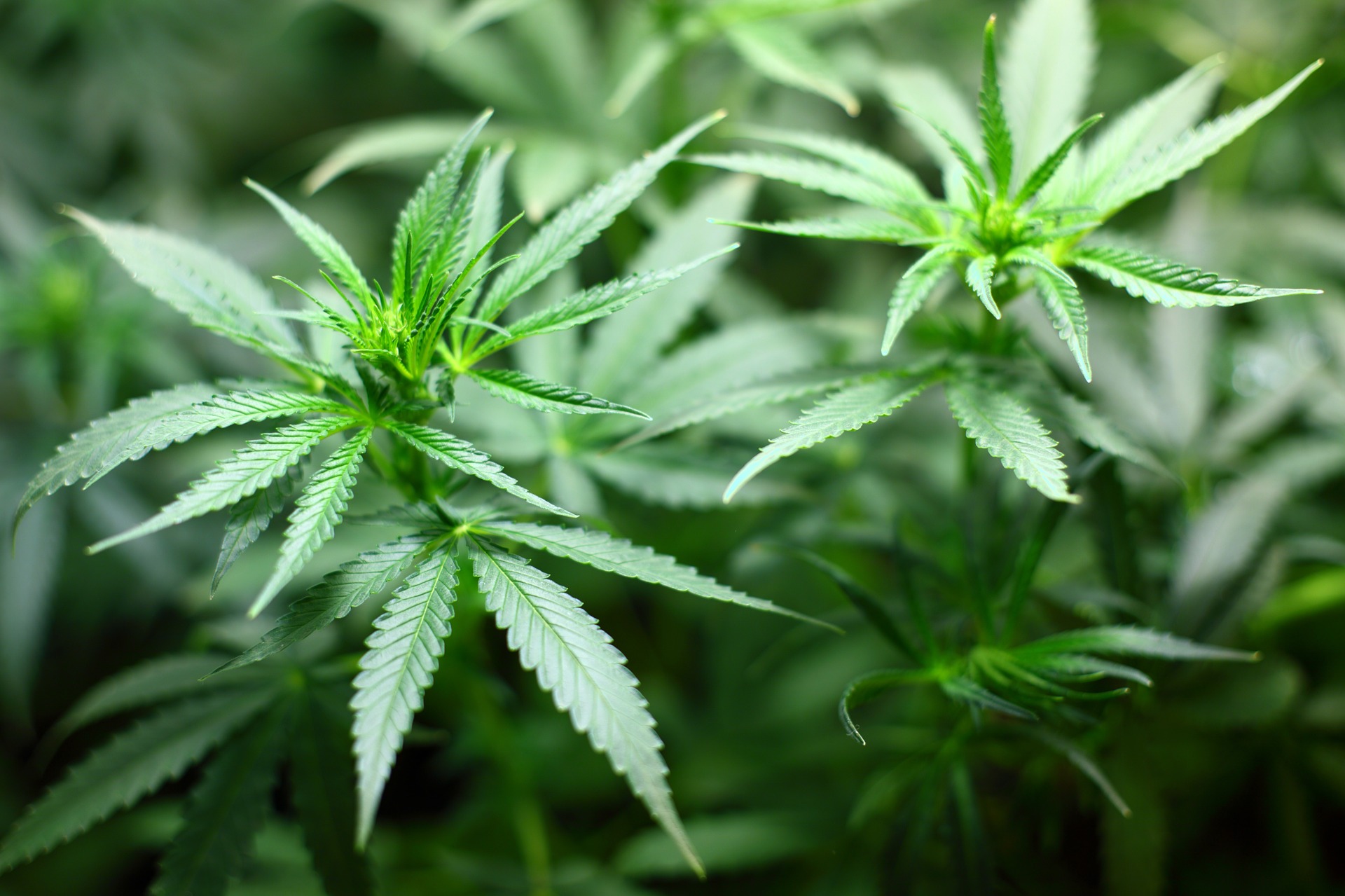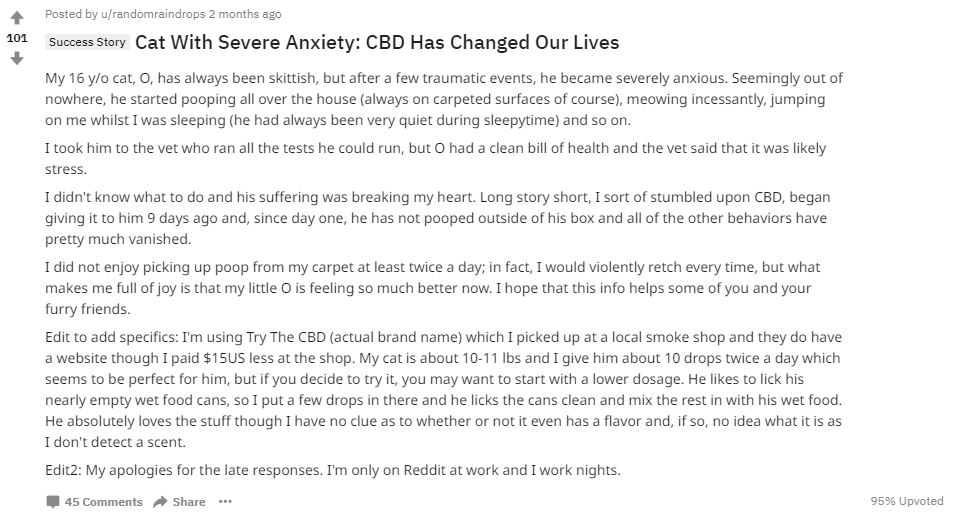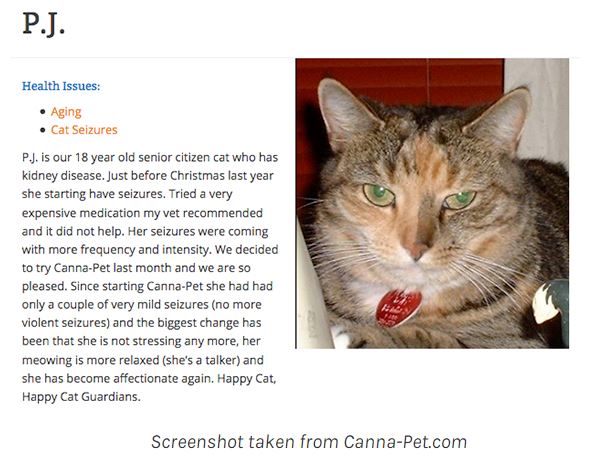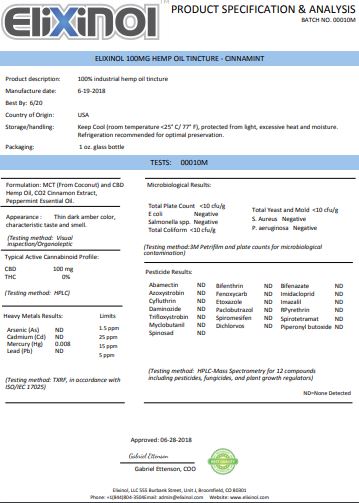CBD for Cats: An In-Depth Look at Cannabis and Hemp for Cats
Last Updated on
As CBD for cats becomes increasingly popular, it’s important that we understand what we’re dealing with.
While at the SuperZoo trade show in Las Vegas a couple of weeks ago, I was impressed by the number of people selling CBD for cats and other pets. On almost every aisle was a company selling CBD products for cats and dogs. At least a few had been in the medical marijuana business for years and developed products for pets in response to the increasing interest in natural pet care.
According to an article published on ConsciousCat, commercial production of medical marijuana for pets began in 2013 with the development of Canna Companion, which is a hemp-based product that’s still one of the leaders in today’s market.
Since then, cannabis for cats and other pets has exploded into popularity and is one of the fastest-growing segments in the pet retail space today.
As the public perception of cannabis changes, we’re becoming increasingly open to using CBD oil, CBD treats, and other cannabis-based medications for our cats. Cannabis is described as an agent of homeostasis, a balancing herb that can reduce inflammation of every variety, soothing every ache and potentially helping to manage serious illnesses like cancer.
But like any other medication or home remedy, it’s important to understand what cannabis is, how it works, and which products are best for our cats.
Cannabis has been used for medicinal purposes for thousands of years.
Even in the United States, this plant’s medicinal potential has been well-known since at least the mid-19th century. By the late 1800’s, wholesome, law-abiding American citizens could buy cannabis extracts in their local drugstores and doctor’s offices.
According to Eric Schlosser, author of Reefer Madness: Sex, Drugs, and Cheap Labor in the American Black Market, all that changed when Mexican immigrants started using it recreationally around the turn of the century. Now the drug of choice for thugs, cannabis became “marihuana” and its reputation turned criminal.
Brown people from across the southern border started smoking marihuana in the states, gaining “superhuman strength”, and acquiring a “lust for blood”.
Between 1916 and 1931, 29 states outlawed marijuana. After Reefer Madness was released in 1936, the federal government passed the Marihuana Tax Act, which would place a tax on all marijuana sales. Interestingly, few in the medical community were familiar with the name “marihuana” and didn’t realize until the last minute that this act would affect the distribution of medicinal cannabis.
And when they did submit their objections, the act was passed over the heads of the AMA.
So as you can see, cannabis has a long history as a medicinal herb. After it was criminalized in the early 20th century, however, research into the herb’s therapeutic benefits came almost to a screeching halt. As advocates of cannabis so often state, it’s easier to do research on its negative effects than it is to study the positive effects.
We’ve heard amazing things about the health benefits of cannabis.
For example, the WHO (World Health Organization) has concluded that CBD may have a therapeutic effect in the treatment of:
- Alzheimer’s disease
- Parkinson’s disease
- Multiple sclerosis
- Huntington’s disease
- Pain
- Anxiety
- Cancer
- Nausea
- Inflammatory diseases
- Arthritis
Despite all the evidence in its favor, cannabis is currently a Schedule 1 drug and it’s illegal for veterinarians to prescribe it to any animal, even in states where marijuana is legal for humans.
Remember that the definition of a schedule 1 drug is one that has both a high potential for abuse and zero medicinal value.
But it’s not all bad. Regardless of where you live, you probably won’t go to prison for giving your cat cannabis. Fortunately for us, cats do best on specific strains of cannabis that are low in THC and high in CBD. Because CBD has no psychotropic effects, it’s legal in all 50 states.
High-CBD cannabis or hemp is easy to find and totally legal to buy. You can easily obtain hemp-based CBD for cats online and in certain pet specialty retailers. While it’s easy to find these products, it’s not always quite as easy to differentiate between the good products and the ones that aren’t so great.
In this article, we’ll go in-depth to probe the often-confusing complexities of CBD for cats.
What is CBD for cats?
The cannabis plant contains over 90 different compounds, and one of them is cannabidiol, also known as CBD. It’s one of the main components of cannabis, along with THC or tetrahydrocannabinol – that’s the psychoactive cannabinoid that’s made cannabis famous.
To reiterate: CBD does not intoxicate or cause a “high”. THC does that. Therefore, a strain of cannabis that’s high in CBD and low in THC will not have any psychotropic effects.
Cats shouldn’t consume any cannabis that’s high in THC. For more information on what happens when your cat consumes THC-rich cannabis, check out our article answering the question “Is Marijuana Safe for Cats?”
How does CBD for cats work?
CBD plugs into your cat’s endocannabinoid system.
Every single vertebrate, including your cat, is built with a complete endocannabinoid system. This system exists in the brain and throughout the central and peripheral nervous system and consists of receptors, enzymes, and endocannabinoids.
The endocannabinoid system was discovered in 1992. Because it’s such a newly discovered system, many of us have likely never heard of this system or understand its effect on the overall organism.
The activity of the endocannabinoid system has an effect on modulating appetite, sleep, mood, memory, motivation, and pain. In general terms, the endocannabinoid system works to ensure homeostasis – a comfortable balance.
Your cat’s body produces its own cannabinoids, which are called anandamide and 2AG, which are like the self-produced version of CBD, THC, and other phytocannabinoids (cannabinoids sourced from plants). By introducing phytocannabinoids into the body, you achieve a sort of intentionally-induced production of the homeostasis that the endocannabinoids do on their own.
Instead of targeting a single symptom or condition, cannabinoids unlock the ability of the endocannabinoid system to generate harmony in the body.
Is CBD for cats effective?
Nearly everything we know about CBD for cats is extrapolated from research on humans and mice or based on anecdotal evidence from people who have given it to their cats.
Although it’s hard to make specific determinations about the effects of CBD on cats, all indicators suggest that it’s a powerful herbal supplement that can help and can’t hurt. According to the stories of those who’ve used it, CBD can help cats with anxiety, nausea, cancer, asthma, seizures, and inflammation of every kind.
CBD for Cats with Cancer
It’s hard to say whether or not CBD can help cats with cancer. There’s some evidence – compelling evidence – that cannabis can kill cancer cells. We’ve been aware of the potential ability of THC to kill cancer cells since the mid-1970s, when researchers found that it reduced the size of tumors in mice. Later research confirmed the effect in mice with breast cancer. One study showed that CBD halted cervical cancer growth.
Every cancer is different, so it’s difficult to determine which cannabis compounds have an effect on cancer as a whole. No one has developed a concrete system for treating cancer with cannabis – but there are people researching it right now, investigating whether or not THC or CBD – or both – work in this capacity.
Although it’s unclear whether or not CBD has the ability to treat every – or any – type of cancer, giving your sick cat CBD can help them to feel better. It can boost your cat’s appetite, reduce nausea, and minimize anxiety when they have to go to the veterinarian.
CBD for Cats with Anxiety
CBD directly activates the serotonin receptors in your cat’s body. Serotonin is a neurotransmitter that is involved in regulating a range of critical responses in your cat’s body, including anxiety, addiction, appetite, sleep, pain perception, and nausea.
In addition to this observation, anecdotal evidence tells us that yes, CBD can help cats with anxiety.
CBD for Cats with Seizures
If you watched the CNN special “Weed” with Sanjay Gupta, you’re familiar with the story of Charlotte Figi, a little girl with a debilitating form of epilepsy. Nothing was helping. The family had left no stone unturned – except for cannabis.
When Charlotte was having up to 300 seizures every day and it looked like there was no other alternative, the family started investigating cannabis oil as a last resort to minimize Charlotte’s suffering. Instead of helping her to feel better in her final days, the cannabis stopped Charlotte’s daily seizures.
In part because of this well-known story of CBD’s effect on humans with seizures, we know that CBD can be an effective treatment for cats struggling with the same condition.
CBD for Cats – are there any side effects?
CBD seldom causes side effects in humans or cats.
Your cat is unique – their CBD experience may be radically unlike that of their feline friends and neighbors. However, side effects are generally rare and mild among humans. Feline responses haven’t been documented quite as well, but their experience has thus far been similar to that of human patients.
The only side effect commonly associated with feline CBD use is fatigue. You might notice that your cat is more sleepy than usual while consuming CBD. If your cat is concerningly fatigued or lethargic while on CBD, discontinue use.
Some humans report feeling paranoid when taking CBD, although this side effect is usually characteristic of cannabis’ other primary component, THC.
Furthermore, CBD appears to be safe to use alongside other drugs, although more research is necessary to know this for certain. According to the WHO, “There is potential for CBD to be associated with drug interactions through inhibition of some cytochrome P450 enzymes, but it is not yet clear whether these effects occur at physiological concentrations.
That said, many people insist that it’s completely safe to use CBD with other medications, albeit not at exactly the same time. If there are other drugs in your cat’s system, it’s probably safe to introduce CBD in addition to that medication.
Choosing the Right CBD for Your Cat
While there’s plenty of evidence that CBD can help your cat, not every CBD product is the same. Let’s talk about what makes a great CBD product for your cat.
Read the label carefully. Choose a product labeled as CBD, CBD hemp oil or hemp extract – avoid hemp seed oil.
Hemp is used for so much more than just medicinal purposes. Various parts of the plant are used for different things. The seeds of the hemp plant may be cold pressed to produce hemp seed oil, which is rich in omega-3 and omega-6 fatty acids. It’s a nutrient-rich oil that you can use just like olive or grapeseed oil, but which doesn’t contain the cannabinoids that have a therapeutic effect.
Hemp extracts made for medicinal purposes are taken from the stem, flowers, and leaves of the hemp plant. The extraction process may be done in several different ways, with CO2 extraction being considered the cleanest method. This extraction process is similar to the process used in extracting essential oils and yields a potent product that’s rich in the cannabinoids that can help your cat.
Look for manufacturers who provide certificates of analysis.
A COA, or certificate of analysis, is a document verifying that your hemp product has undergone certain tests. By providing information on the cannabinoid percentages and formulation of the product, the COA gives written documentation of what you’re putting into your cat’s body.
This is important. While most of them play up the loving hippie image, not all CBD manufacturers are equally scrupulous.
If you’re buying a full-spectrum or whole-plant THC-free CBD product, for example, the certificate of analysis can confirm that the manufacturer is indeed giving you a full-spectrum product rather than a mislabeled isolate.
Think about sourcing.
It’s always important to ask where a product was made and where the plants were grown. Different countries are known for their unique quality control practices, and some are much better – or worse – than others.
In the 1990’s, several European countries stopped criminalizing the cultivation of industrial hemp. During the last almost 30 years, European hemp farmers have become highly experienced, own the best equipment, and have several decades of knowledge about their crops.
Hemp Export Worldwide
American companies selling medical marijuana products were once restricted to imported cannabis. In 2014, the annual Farm Bill contained an amendment decriminalizing commercial hemp cultivation in certain states. American hemp farmers are relatively new to the game and it’s important to do your due diligence and thoroughly investigate your source to ensure that they’re doing everything right.
Considering all of the above, European cannabis is still the gold standard – cultivated by knowledgeable farmers on well-established farms, growing their hemp in countries known for their stringent quality regulations. For U.S. consumers, buying American-grown cannabis means supporting their own country’s industry, but it also means that you might not be getting the highest quality products.
Ensure that the CBD was organically grown.
If you avoid chemical pesticides in your or your cat’s food, remember that it’s important to ensure that your cat’s CBD was also grown without the use of these potentially harmful chemicals.
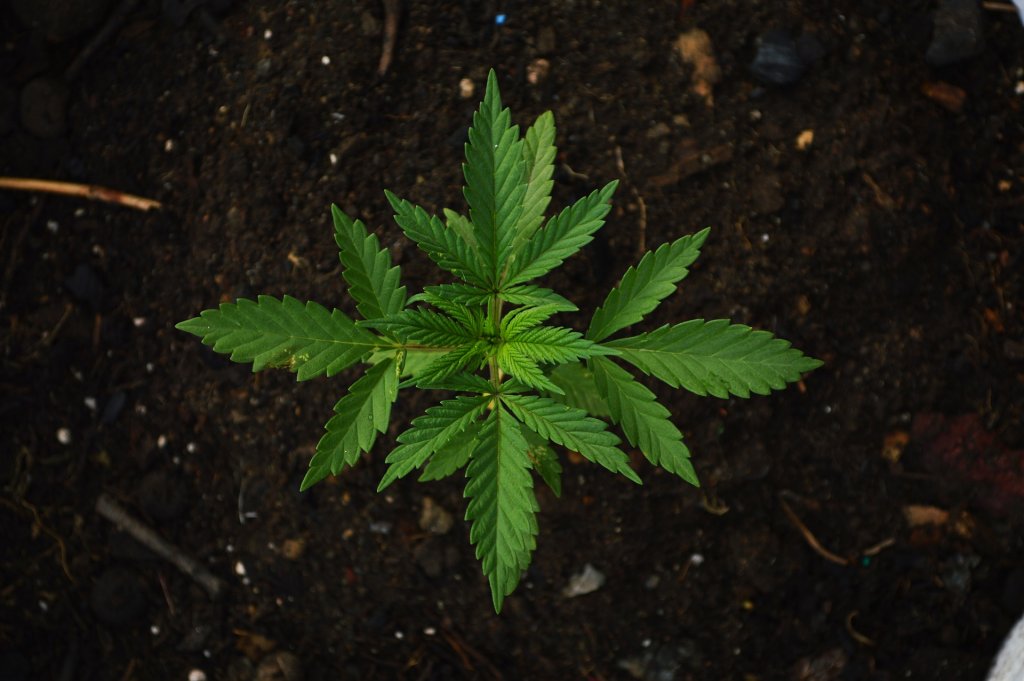
Are isolates or whole-plant products better for cats?
CBD isolates are just that – isolated CBD. They are up to 99% cannabidiol and offer all the benefits of CBD on the endocannabinoid system. But they don’t have the benefits of the over 100 other cannabinoids, vitamins, minerals, phytonutrients, omega-3 fatty acids, terpenes, and flavonoids found in the whole hemp plant.
The entourage effect suggests that the components of hemp work better when acting in synergy with the other ones found in the plant.
In this sense, whole plant hemp products are better for your cat. As always, it’s important to ensure that the product you choose is free from THC, which is a cannabinoid with a psychoactive effect.
Be careful when shopping on Amazon.
They can’t offer any products that are openly advertised as cannabis. Take a look at this product currently available on Amazon.
Can you tell whether or not it’s an effective CBD-rich product? It’s not – and yet customer reviews suggest that many previous customers believed otherwise.
Amazon’s list of prohibited items makes it clear:
Yes, there’s the possibility you’ll find a CBD-rich product that’s posted in spite of the rules, but due to Amazon drug sale regulations, those products will not be clearly labeled or advertised.
It’s easier to go directly to the businesses that make and sell CBD for cats.

Package: Canna-Pet® Advanced Large 60 capsules & 10ml MaxCBD Liquid – $119.99
Retail Price: $164.98
You Save: $44.99
from: Canna-Pet, LLC
Choose a CBD product that’s easy to dose.
Although it’s difficult to pin down exactly the right dose of CBD for cats, it’s generally recommended that cats get .5mg CBD for every pound of bodyweight. If your cat weighs 10lbs, then you would give them a 5mg dose. Dosing isn’t an exact science – those who consider themselves pet CBD experts hesitate to give precise recommendations, emphasizing that every individual is different.
Regardless of what dosage you choose for your cat, it’s a good idea to select a product that makes dosing simple. Using an oil dropper makes dosing simple, while it’s more challenging to measure out an accurate dose from a standard bottle with no dropper.
What’s the best type of CBD for cats?
When you go shopping for feline-friendly CBD, you’ll encounter a wide variety of products. They’re manufactured differently, administered differently, and each has a slightly different impact on your cat’s body.
Here’s an overview of the types of CBD products you’ll find for cats.
CBD Alcohol Tinctures
These products are CBD in a tincture of alcohol. The alcohol can be hard on your cat’s liver and doesn’t taste very good. Therefore, alcohol tinctures aren’t recommended for cats.
CBD Oil for Cats
This is the most popular type of CBD for cats. Cannabinoids readily extract into oil, so a hemp or CBD oil is usually an effective form of the product. It’s important to ensure that you’re getting a CBD-rich hemp oil made for medicinal purposes.
CBD Cat Treats
While CBD cat treats seem like a great idea, they might not actually be the best choice for your cat. Here’s why.
The biggest users of CBD are cats who are sick – incidentally, the cats least likely to have any interest in eating a treat. Instead of hoping that your cat’s appetite will help you in the medication process, pick a medium that doesn’t make any demands on your cat’s appetite.
Sublingual medications aren’t as fun as CBD treats, but they can be a better way to give your cat the CBD they need. When you apply the CBD on your cat’s oral mucosa, it moves directly into their bloodstream through the capillaries rather than being slowly processed through the digestive tract. It’s a more effective way of getting the medication into your cat’s system.
Making Your Own CBD Oil or Butter
If you have access to high-CBD hemp plants and would like to make your own cannabutter or cannaoil, it’s relatively easy to do so. Cannabinoids readily extract into oil. One benefit of this method is palatability – most cats love both butter and coconut oil.
If you’ve been shopping around for CBD for cats, you’ll know that these products are expensive. Doing your own extractions in oil or butter is a particularly economical option, especially for those who can grow their own hemp.
Finally, here are a few brands with a reputation for creating safe, high-quality CBD for cats.
In the future, we would love to do in-depth reviews of the best CBD for cats. At this point, however, the limited research and our limited access to CBD products make us unable to intelligently evaluate the products on the market.
Have you treated your cat with CBD? We want to hear about it. Tell us your CBD stories in the comments or send us an email.
.
.
.
Want even more information about CBD for cats?
The CBD Awareness Project offers a wealth of information about CBD—from its use and benefits to CBD’s legal status. Take a look at their in-depth article on CBD for cats if you’re interested in learning even more about what it can do for your cat.

